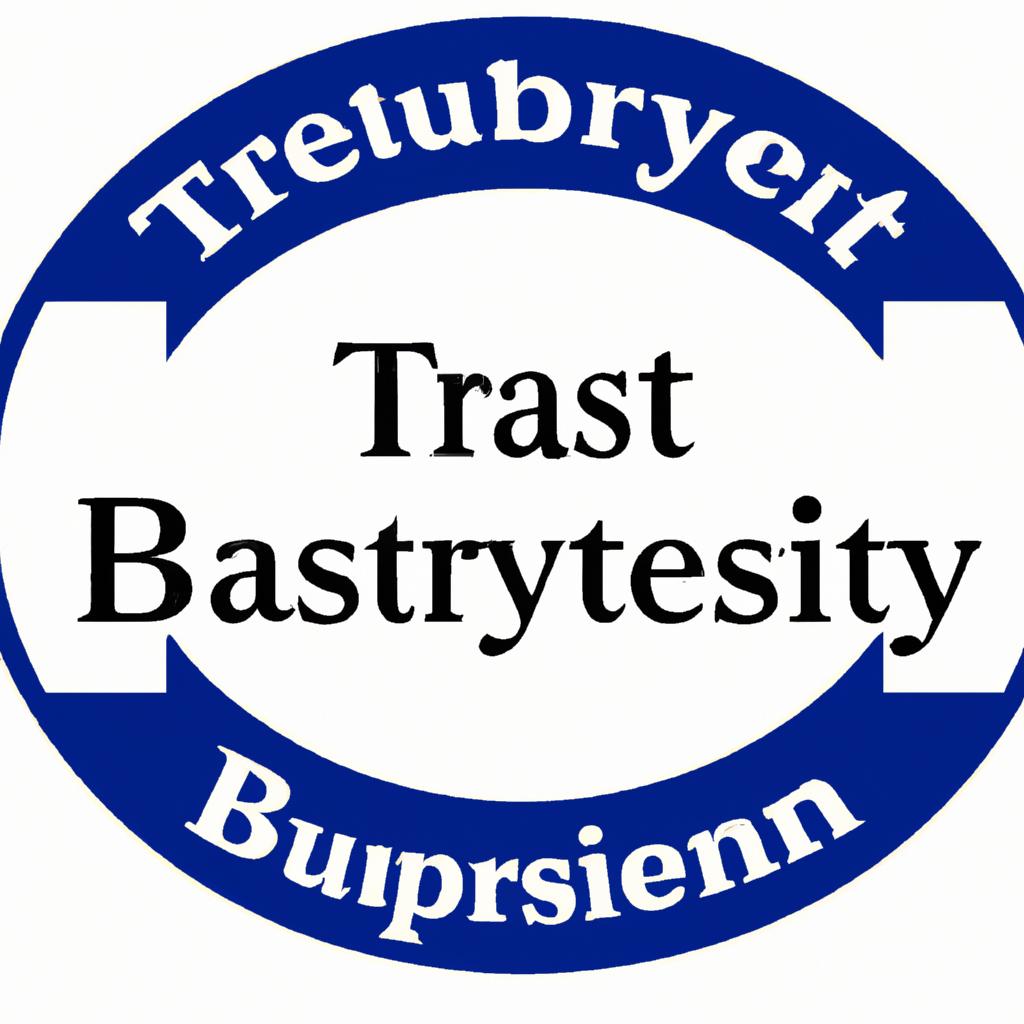In the intricate web of estate planning, one question that often arises is whether a bypass trust is truly irrevocable. As seasoned legal professionals at Morgan Legal Group in New York City, we understand the nuances of trust structures and their implications on estate distribution. Join us as we delve into the complexities of bypass trusts and explore the definitive answer to the burning question: Is a bypass trust irrevocable
– Understanding the Nature of a Bypass Trust: A Closer Look at its Irrevocability
When it comes to estate planning, understanding the nature of a bypass trust is crucial. One of the key characteristics of a bypass trust is its irrevocability. This means once the trust is established, the grantor cannot change or revoke it. This may seem daunting to some, but there are important reasons why a bypass trust is designed to be irrevocable.
By making a bypass trust irrevocable, the assets placed into the trust are no longer considered part of the grantor’s estate for estate tax purposes. This can result in significant tax savings for beneficiaries. Additionally, an irrevocable bypass trust provides asset protection from creditors and ensures that the grantor’s wishes are carried out exactly as intended. While the irrevocability of a bypass trust may seem permanent, consulting with an experienced estate planning attorney can help navigate the complexities of this powerful tool.

– Examining the Legal Implications of Establishing an Irrevocable Bypass Trust
When considering the establishment of an irrevocable bypass trust, it is crucial to understand the legal implications that come with such a decision. An irrevocable bypass trust is a type of trust that cannot be altered or revoked once it has been set up. This means that the assets placed into the trust are no longer under the control of the grantor, and typically cannot be accessed by creditors or beneficiaries until the terms of the trust are met.
One of the main legal implications of establishing an irrevocable bypass trust is that the assets placed into the trust are no longer considered part of the grantor’s taxable estate. This can have significant tax advantages, as it may help to reduce estate taxes upon the grantor’s passing. Additionally, an irrevocable bypass trust can provide protections against creditors and can ensure that the trust assets are distributed according to the grantor’s wishes. However, it is important to consult with a skilled estate planning attorney to fully understand the legal ramifications of establishing such a trust.

– Key Considerations Before Committing to an Irrevocable Bypass Trust
Before committing to an irrevocable bypass trust, it is essential to understand the key considerations that come with this type of trust. One of the primary factors to consider is that once the trust is established, it cannot be revoked or amended, meaning that the assets transferred to the trust are permanently removed from the grantor’s estate.
Additionally, it is important to carefully evaluate the potential tax implications of setting up an irrevocable bypass trust. While this type of trust can help reduce estate taxes for beneficiaries, there may be gift tax consequences for the grantor at the time of funding the trust. Consulting with an experienced estate planning attorney can provide valuable insights and guidance on whether an irrevocable bypass trust is the right option for your estate planning needs.

– Expert Recommendations for Maximizing the Benefits of an Irrevocable Bypass Trust
When it comes to maximizing the benefits of an irrevocable bypass trust, there are several expert recommendations that can help ensure that you are taking full advantage of this powerful estate planning tool. One key recommendation is to carefully consider the assets that you place in the trust, as this can have a significant impact on the overall effectiveness of the trust. By strategically selecting assets that are likely to appreciate in value, you can maximize the potential growth and tax benefits of the trust over time.
Additionally, regularly reviewing and updating the terms of the trust is crucial for ensuring that it continues to align with your goals and objectives. This can involve working closely with a knowledgeable estate planning attorney to make any necessary modifications, such as adjusting beneficiaries or updating distribution schedules. By staying proactive and engaged with your bypass trust, you can help ensure that it remains a valuable tool for protecting and growing your assets for future generations.
Q&A
Q: Is a bypass trust irrevocable?
A: Yes, a bypass trust is generally irrevocable once it has been established.
Q: Can a bypass trust be changed or modified?
A: In most cases, a bypass trust cannot be changed or modified once it has been created. This is because the assets placed in the trust are no longer considered part of the grantor’s estate.
Q: What are the benefits of a bypass trust being irrevocable?
A: By making a bypass trust irrevocable, the grantor can ensure that the assets placed in the trust are protected from creditors and are exempt from estate taxes. Additionally, it provides a more secure means of passing wealth on to future generations.
Q: Are there any downsides to having a bypass trust be irrevocable?
A: One potential downside is that the grantor loses control over the assets placed in the trust, as they are no longer considered part of their estate. Additionally, it may limit the flexibility of the grantor to make changes to the trust in the future.
Q: How can one ensure a bypass trust is irrevocable?
A: To ensure that a bypass trust is irrevocable, it is important to consult with an experienced estate planning attorney who can help draft the trust document and ensure that it meets all legal requirements for irrevocability.
The Conclusion
In conclusion, while a bypass trust may offer certain advantages in estate planning, it is important to understand that once it is created, it is typically considered irrevocable. This means that careful consideration and expert advice should be sought before establishing such a trust to ensure that it aligns with your long-term goals and objectives. Remember, estate planning is a complex and ever-evolving process, so it is always wise to consult with a knowledgeable professional to navigate the intricacies of bypass trusts and other estate planning tools.
 Is a Bypass Trust Irrevocable? Exploring the Ins and Outs of This Estate Planning Tool
Is a Bypass Trust Irrevocable? Exploring the Ins and Outs of This Estate Planning Tool
Estate planning can often feel overwhelming and complex. There are numerous legal documents and strategies to consider, including trusts. One type of trust that is commonly used is a bypass trust, also known as an AB trust or a credit shelter trust.
But what exactly is a bypass trust, and is it irrevocable? In this article, we will delve into the details of bypass trusts, including its purpose, function, and irrevocability. So whether you are a novice to estate planning or a seasoned professional, read on to learn more.
Understanding the Purpose and Function of a Bypass Trust
Before we can answer the question of whether a bypass trust is irrevocable, it is essential to understand its purpose and function in an estate plan. A bypass trust is a type of irrevocable trust that is often created by married couples to minimize estate taxes and preserve wealth for future generations.
When one spouse passes away, the assets that are placed in the bypass trust do not count towards the surviving spouse’s estate. Instead, the assets are held in trust and can continue to grow and provide income for the beneficiaries named in the trust. This helps reduce the overall value of the surviving spouse’s estate and, in turn, minimizes the estate taxes that may be owed upon their passing.
Furthermore, a bypass trust can also safeguard assets from creditors, ex-spouses, and other potential threats. It allows the deceased spouse to have control over how their assets are distributed and who receives them, even after they have passed away.
Key Factors That Make a Bypass Trust Irrevocable
Now that we have a better understanding of the purpose and function of a bypass trust, let’s explore the key factors that make it an irrevocable trust. An irrevocable trust is a type of trust that cannot be altered or revoked once it has been created.
1. Transfer of Assets
The first factor that makes a bypass trust irrevocable is the transfer of assets. When one spouse passes away, their assets are transferred to the bypass trust. This transfer is typically irreversible, meaning that the assets cannot be taken back once they have been placed in the trust.
2. Control Over the Trust
Another key factor that makes a bypass trust irrevocable is that the deceased spouse no longer has control over the trust. The surviving spouse may be named as the trustee, giving them limited control over the trust’s assets, but they cannot make changes to the trust’s terms or provisions.
3. Beneficiary Designations
Additionally, the beneficiaries named in the bypass trust cannot be changed or altered. In most cases, the beneficiaries are the children of the deceased spouse, and they receive income from the trust until they reach a certain age or event. Once the beneficiaries have been named, they cannot be changed, making the bypass trust an irrevocable trust.
The Benefits and Practical Tips of a Bypass Trust
Now that we understand the purpose, function, and irrevocability of a bypass trust, let’s explore the benefits and practical tips of incorporating one into your estate plan.
1. Minimize Estate Taxes
As mentioned earlier, the primary purpose of a bypass trust is to minimize estate taxes. By placing assets into the trust, they are effectively removed from the surviving spouse’s estate, reducing its overall value and potential tax burden.
2. Asset Protection
A bypass trust can also help protect assets from potential threats such as creditors, ex-spouses, and spendthrift beneficiaries. By placing assets into a trust, they are no longer owned by the individual and are not subject to potential claims or legal action.
3. Provides Control and Flexibility
Even though a bypass trust is an irrevocable trust, there is still some level of control and flexibility. As the deceased spouse, you can set specific guidelines and conditions for how the trust assets are distributed. This allows you to provide for your loved ones while ensuring that the assets are used responsibly and according to your wishes.
4. Consult with an Estate Planning Attorney
When it comes to estate planning and trusts, consulting with an experienced attorney is crucial. They can help guide you through the process and ensure that everything is set up correctly to achieve your goals. They can also provide valuable insights and suggestions for incorporating a bypass trust into your estate plan.
In Conclusion
In summary, a bypass trust is a type of trust that is commonly used in estate planning to minimize taxes and protect assets for future generations. It is an irrevocable trust, meaning it cannot be altered or revoked once it has been created. By understanding the purpose and function of a bypass trust, along with its irrevocability, you can make informed decisions about incorporating it into your estate plan.
Remember, estate planning can be complex, and it is always best to consult with an experienced professional to ensure that your wishes are carried out accurately and effectively. With proper planning and legal guidance, you can set up a bypass trust that serves as a valuable tool in protecting and preserving your legacy for generations to come.

